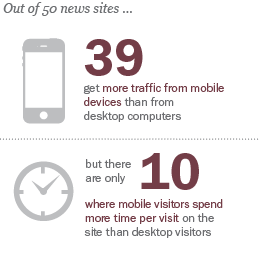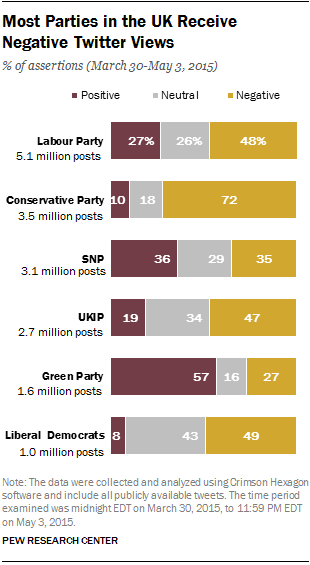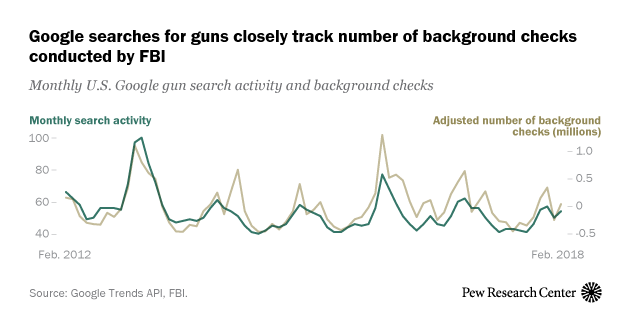 The public's muted response on possible government monitoring of their online behavior differs from that of investigative journalists, whose work makes them potential targets for monitoring.
The public's muted response on possible government monitoring of their online behavior differs from that of investigative journalists, whose work makes them potential targets for monitoring.- 21521Murphy2025-03-20
 A new Pew Research Center analysis finds low-income households, especially black and Hispanic ones, make up a disproportionate share of the 5 million with school-age children that lack broadband access.
A new Pew Research Center analysis finds low-income households, especially black and Hispanic ones, make up a disproportionate share of the 5 million with school-age children that lack broadband access.- 21727Murphy2025-03-20
 Compared with the previous two generations, Millennials are less familiar with many news sources we asked about. Here are 5 facts about Millennials' news habits.
Compared with the previous two generations, Millennials are less familiar with many news sources we asked about. Here are 5 facts about Millennials' news habits.- 25490Murphy2025-03-20
 Most online harassment consists of name-calling or trying to embarrass someone, but there is also the darker side of physical threats: stalking, sexual harassment and being harassed for a long period of time.
Most online harassment consists of name-calling or trying to embarrass someone, but there is also the darker side of physical threats: stalking, sexual harassment and being harassed for a long period of time.- 24710Murphy2025-03-20
 A hard look at the digital publishing business shows the degree to which Facebook, more than any other single company, is where the digital display ad money is.
A hard look at the digital publishing business shows the degree to which Facebook, more than any other single company, is where the digital display ad money is.- 23421Murphy2025-03-20
 Our annual report surveys the landscape of U.S. journalism, from the changes driven by mobile devices to the ups and downs of legacy news organizations.
Our annual report surveys the landscape of U.S. journalism, from the changes driven by mobile devices to the ups and downs of legacy news organizations.- 27314Murphy2025-03-20
 Although seniors tend to lag their younger counterparts in tech adoption, more seniors than those 18-29 describe their smartphone as liberating.
Although seniors tend to lag their younger counterparts in tech adoption, more seniors than those 18-29 describe their smartphone as liberating.- 25415Murphy2025-03-20
 Minority smartphone owners tend to rely more heavily on their phone than whites do for internet access, according to our recent report on smartphone adoption.
Minority smartphone owners tend to rely more heavily on their phone than whites do for internet access, according to our recent report on smartphone adoption.- 24002Murphy2025-03-20
 Circa is the latest casualty of a fragile digital news scene that is by no means immune to the risks facing startups in general.
Circa is the latest casualty of a fragile digital news scene that is by no means immune to the risks facing startups in general.- 24514Murphy2025-03-20
 A new Pew Research Center analysis of the months leading up to election day finds that four of the six parties studied received more negative commentary than positive.
A new Pew Research Center analysis of the months leading up to election day finds that four of the six parties studied received more negative commentary than positive.- 29055Murphy2025-03-20
 We asked residents in Denver, Macon, Ga., and Sioux City, Iowa, about the actions they take to gather, share and add to the news in their communities.
We asked residents in Denver, Macon, Ga., and Sioux City, Iowa, about the actions they take to gather, share and add to the news in their communities.- 25021Murphy2025-03-20
 Revelations in September 2013 that the U.S. government had monitored the private communications of Brazil’s President Dilma Rousseff had strained relations between the two countries.
Revelations in September 2013 that the U.S. government had monitored the private communications of Brazil’s President Dilma Rousseff had strained relations between the two countries.- 27785Murphy2025-03-20
 Overall, 16% of registered voters follow candidates for office, political parties, or elected officials on a social networking site.
Overall, 16% of registered voters follow candidates for office, political parties, or elected officials on a social networking site.- 26984Murphy2025-03-20
 Among Greek-language tweets studied, 40% of the conversation included positive expressions about the EU proposals on the referendum calling for a financial bailout, while 33% was negative and 27% was neutral.
Among Greek-language tweets studied, 40% of the conversation included positive expressions about the EU proposals on the referendum calling for a financial bailout, while 33% was negative and 27% was neutral.- 28818Murphy2025-03-20
 Many Americans want control over their personal information and freedom from observation during the activities of their daily lives, but they are not confident that the government agencies or businesses that collect data about them can keep that informati
Many Americans want control over their personal information and freedom from observation during the activities of their daily lives, but they are not confident that the government agencies or businesses that collect data about them can keep that informati- 23382Murphy2025-03-20
 More Americans get news on Twitter and Facebook today than in the past. We pulled together key facts about news consumption on these two popular social media sites.
More Americans get news on Twitter and Facebook today than in the past. We pulled together key facts about news consumption on these two popular social media sites.- 21818Murphy2025-03-20
 An analysis of how 12 heavily visited U.S. news websites covered the pope's visit to America. The news narrative around Pope Francis’ visit to the United States drew heavily upon the Pope and the public as sources.
An analysis of how 12 heavily visited U.S. news websites covered the pope's visit to America. The news narrative around Pope Francis’ visit to the United States drew heavily upon the Pope and the public as sources.- 28524Murphy2025-03-20
 A new analysis of about 300,000 tweets in Greek and English, collected between July 6 and 12, finds that the conversation about the controversial Greek prime minister has been primarily negative in tone, especially among those posting tweets in Greek.
A new analysis of about 300,000 tweets in Greek and English, collected between July 6 and 12, finds that the conversation about the controversial Greek prime minister has been primarily negative in tone, especially among those posting tweets in Greek.- 24113Murphy2025-03-20
 Nearly two-thirds of American adults (65%) use social networking sites, up from 7% when Pew Research Center began tracking social media usage in 2005.
Nearly two-thirds of American adults (65%) use social networking sites, up from 7% when Pew Research Center began tracking social media usage in 2005.- 23003Murphy2025-03-20
 Our "always-on" mobile connectivity is changing the nature of public spaces and social gatherings. It's also rewriting social norms of what is rude and what is acceptable behavior.
Our "always-on" mobile connectivity is changing the nature of public spaces and social gatherings. It's also rewriting social norms of what is rude and what is acceptable behavior.- 27580Murphy2025-03-20
 Read key findings from an analysis that looks into the public's interest in guns as potential consumer products, rather than as a subject of general interest.
Read key findings from an analysis that looks into the public's interest in guns as potential consumer products, rather than as a subject of general interest. A majority of Americans say they use YouTube and Facebook, while use of Instagram, Snapchat and TikTok is especially common among adults under 30.
A majority of Americans say they use YouTube and Facebook, while use of Instagram, Snapchat and TikTok is especially common among adults under 30.






















